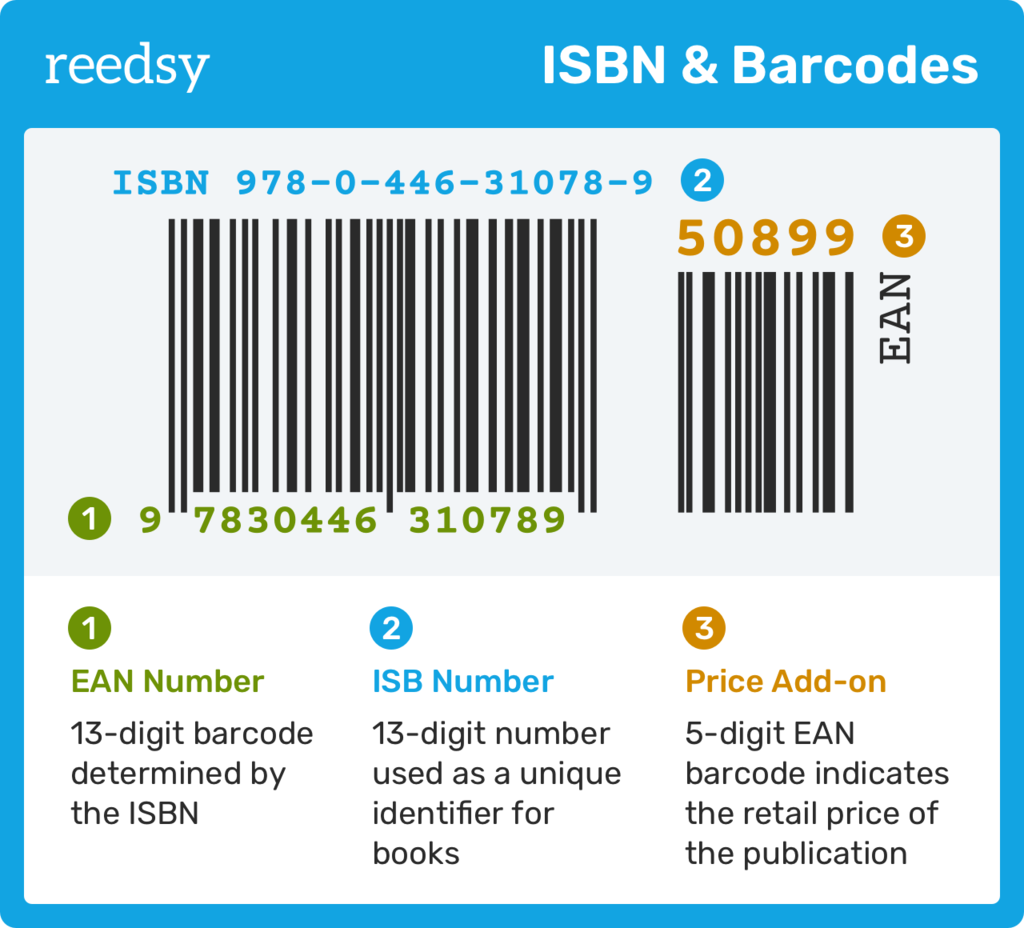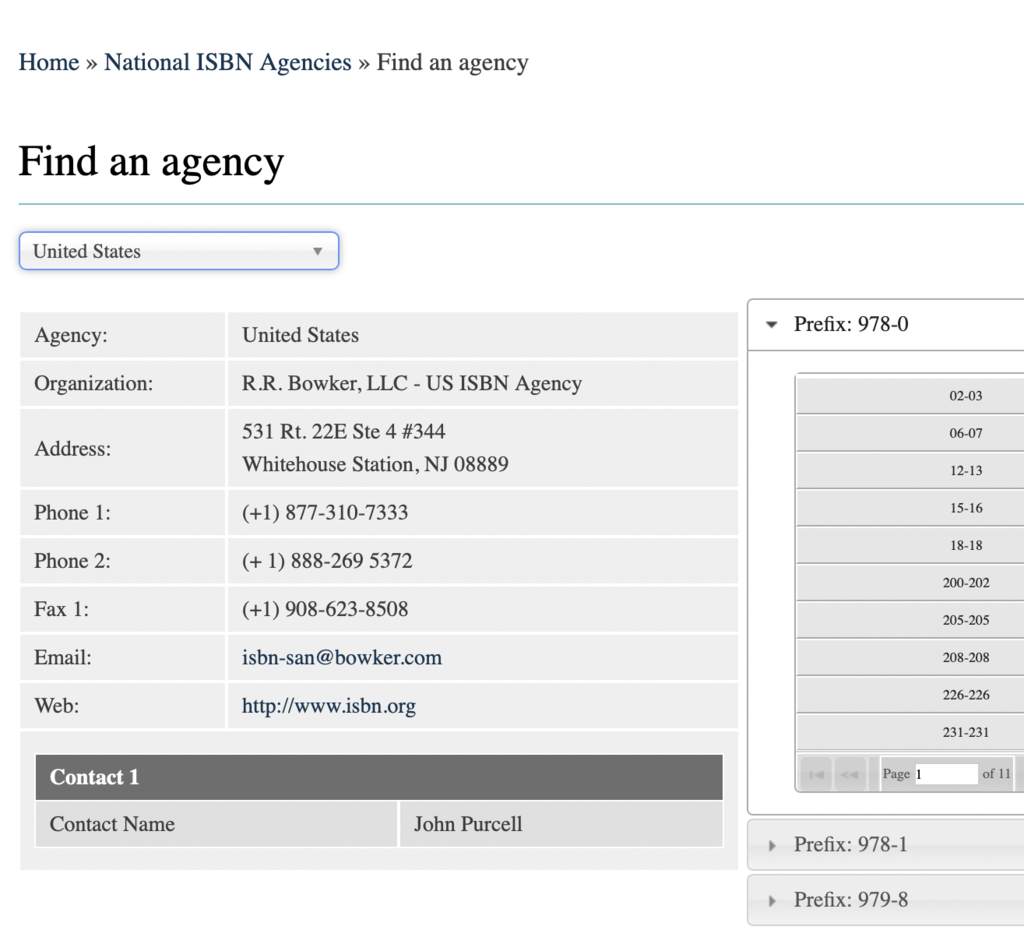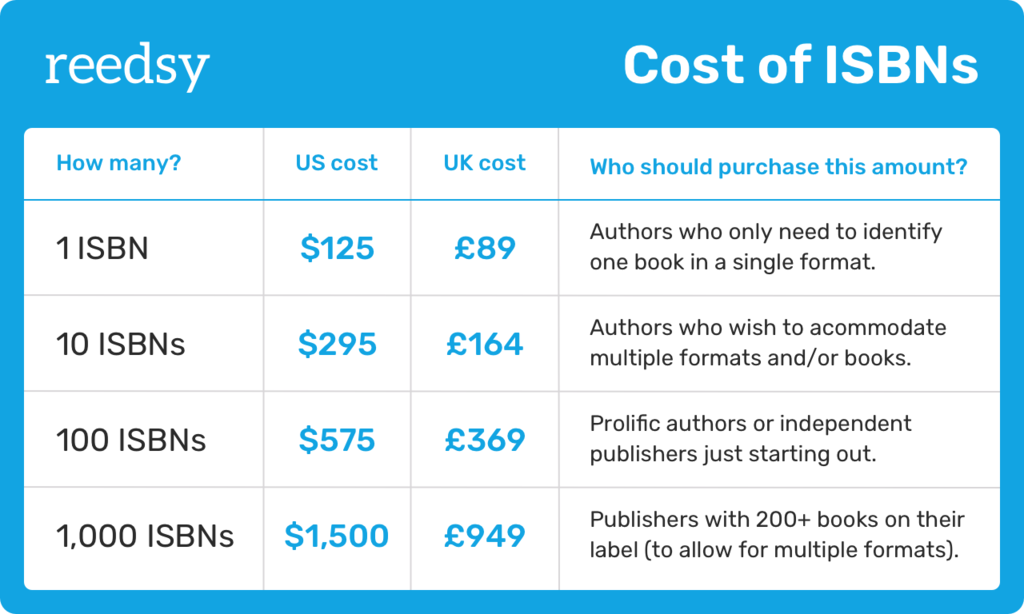Blog •
Last updated on Jun 17, 2025
How to Get an ISBN Number for Your Book
About the author
Reedsy's editorial team is a diverse group of industry experts devoted to helping authors write and publish beautiful books.
More about the Reedsy Editorial Team →Martin Cavannagh
Head of Content at Reedsy, Martin has spent over eight years helping writers turn their ambitions into reality. As a voice in the indie publishing space, he has written for a number of outlets and spoken at conferences, including the 2024 Writers Summit at the London Book Fair.
View profile →A common question that self-publishing authors ask us at Reedsy is, "How do I get an ISBN number for my book?" The truth is that purchasing an ISBN is really simple. You can buy one from an official ISBN agency, such as Bowker MyIdentifiers in the US or Nielsen ISBN Store in the UK. Or you can get one discounted or free from platforms like Kindle Direct Publishing (KDP) — and sometimes, you won't even need one at all.
In this guide, we'll show you how to get an ISBN number for your book — either at a rock-bottom cost or no cost at all.
What is an ISBN number?
An International Standard Book Number, or ISBN, is a 13-digit code used as a unique identifier for books or other published products. An ISBN is assigned to each edition of a book, helping publishers, bookstores, and libraries keep track of their orders, sales, and inventory. Readers can also use them to look up specific editions online.
ISBNs usually appear on the back of a book alongside the barcode.
 If you intend to sell a print edition of your book, it's pretty much mandatory to have an ISBN. Every step in the supply chain uses these codes to identify and organize their stock, so if you don't have an ISBN, retailers and distributors won't be able to handle your book.
If you intend to sell a print edition of your book, it's pretty much mandatory to have an ISBN. Every step in the supply chain uses these codes to identify and organize their stock, so if you don't have an ISBN, retailers and distributors won't be able to handle your book.
So, with that in mind, let's see how you go about securing a code of your own.
How to Get an ISBN in 3 Steps
As a self-publishing author, you can get an ISBN barcode for your book by purchasing it from an ISBN agency like Bowker for $125, or for free from other publishers and distributors, like Draft2Digital. Keep in mind you’ll need an ISBN number for each version of your title (e.g. print or ebook).
Here's a simple way to get an ISBN:
1. Choose between free and paid ISBNs
There are a handful of big ISBN vendors, like Bowker and Nielsen, who are the go-to sources for most authors. However, depending on your publishing aims, it’s also possible to use cheaper or free ISBNs.
Where to get free ISBN numbers
In the US and UK, many aggregators (companies that distribute your book to multiple retailers) will assign indie authors an ISBN for free, or at a discount. These aggregators include:
|
Aggregator |
Cost to assign an ISBN |
|
Draft2Digital |
Free |
|
IngramSpark |
Free |
|
BookBaby |
Discounted ($49 each) |
|
eBookPartnership |
Free |
Some government territories, such as Canada, provide free ISBN numbers (lucky you)! The second step of this how-to will give you more information about your regional providers.
A note on ASINs
While we’re talking about free ISBNs, it’s worth mentioning an alternative: the ASIN. The ASIN functions similarly to the ISBN, but is only used within Amazon — and you’re given one for free whenever you get a book on Amazon.
So why would you need both? Basically, while you cannot rely on a book’s ASIN to find it outside of Amazon, you can always count on an ISBN. For that reason, if you plan to “go wide” on other sites — or have distribution in brick-and-mortar stores — you’ll need an ISBN in addition to an ASIN. If you plan to self-publish on Amazon exclusively, you can, by all means, forego the ISBN costs and stick to the free ASIN.
👀
Do you need an ISBN number?
It'll only take a minute!
Why you might want to buy an ISBN anyway
So you can get an ISBN for free or at a discounted price, or if you’re only publishing digitally on Amazon, you don’t need an ISBN at all. So why would anyone ever pay for an ISBN?
Aha! Here’s the catch: when you register for an ISBN number through an aggregator like the ones we listed above, industry regulations mean that you are limited to the retail channels of that company alone, whereas simply buying an ISBN from the start means you can expand wherever you see fit.
To show you what we mean: maybe you’re selling your book on Amazon (an individual platform), and then decide to go wider through Draft2Digital (an aggregator). The former provides you with a free ASIN and the latter with a free ISBN.
But let’s say your sales aren't too strong, and you want to make your book available on other distribution channels, like BookBaby and eBookPartnership. If you didn't buy your ISBN independently, you’ll need to register for separate numbers from each of those publishing companies as well. This can snowball into you having several ISBNs and different publishers all listed for the same book, which looks seriously unprofessional and may harm your book’s chances of getting stocked in brick-and-mortar bookstores and libraries.
Ultimately, it’s up to you whether you want to keep your ISBN consistent between aggregators or if you’re happy with a mix. If you aren’t sure which decision is in your best interests, perhaps consider working with a professional book marketer to ensure you maximize your chances of success.

MEET THE BEST PUBLISHING PROFESSIONALS
Polish your book with expert help
Sign up to browse 2000+ experienced editors, designers, and marketers.
2. Identify providers in your region
Each country or territory has its own regional provider of ISBNs. Perhaps the best-known ISBN provider is Bowker, the official administrator for the United States. In the United Kingdom, authors can buy a number through Nielsen.
To find out whether ISBNs are free in your country (and for instructions on requesting a number), you can look up your local agency here.

Once you’ve identified your local provider, you’re ready to buy!
3. Buy ISBNs in bulk for the best value
One book, one ISBN needed, right? Not so fast.
Not only do ISBNs have a heavy discount on bulk purchases, but a single ISBN is rarely enough. Say you’re publishing a paperback. If you ever want to revise or release that paperback in a new edition, you’ll need a new ISBN. You’ll also need another ISBN for a future hardcover edition, and the same applies to releasing an audiobook. If you make all those single purchases via Bowker, you’re looking at $500 for 4 ISBNs, while a bulk purchase of 10 ISBNs will only set you back $295.
We’ve broken down these Bowker costs for US authors and publishers, as well as the Nielsen costs for those in the UK, in the table below:

Even if you’re only working on one book at the moment, 10 ISBNs are a sensible investment when you’re starting out.
Bonus tip: Register your ISBN with Bowkerlink
Regardless of where you live or who provided your ISBN, once you have received your number, you should register it at Bowkerlink. This will automatically add your title to Bowker’s Books In Print: a bibliographic database consulted by libraries around the world. Books In Print currently hosts about 7.5 million US book, audiobook, and movie titles, as well as 12 million international titles — and yours is about to be one of them!
Now you’ve sorted out all the practicalities and your book is ready for sale, why not check out more of our resources on what to do next. If you haven’t yet got a plan in place for promoting your book, our guide on that is a good place to start!

